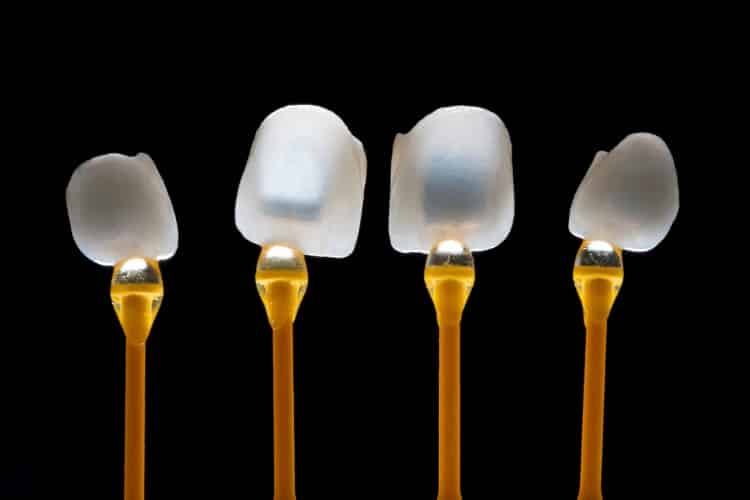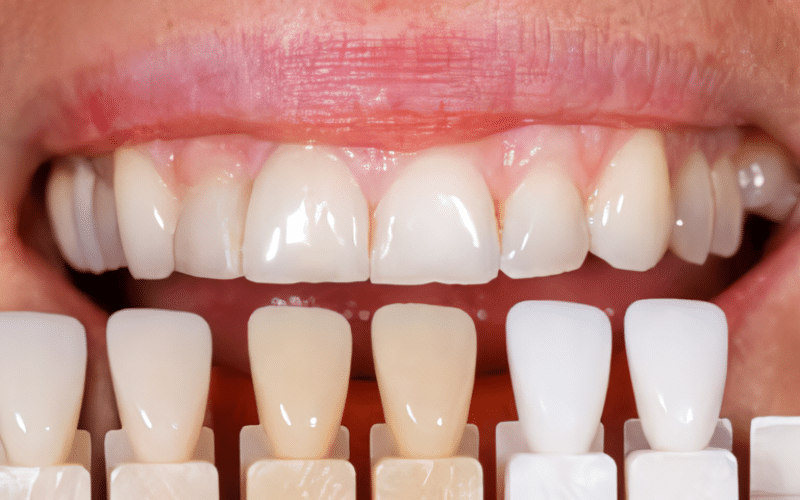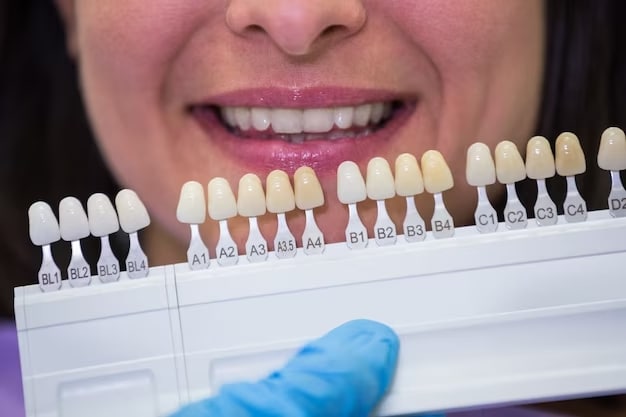4801 Southern Hills Dr, Sioux City, IA 51106, USA

The eternal question that haunts the minds of veneer-wearing foodies everywhere: can you eat hard food with veneers without sending your precious dental investments into a panic? It’s the dental dilemma of the century, reminiscent of a classic sitcom plotline. Picture this: you, armed with a perfectly crafted smile courtesy of your trusty veneers, facing off against a crunchy carrot or a stubborn walnut. Will your veneers emerge victorious, or will they crumble under the pressure like a poorly written punchline?
Veneers are a renowned cosmetic dentistry option for achieving a flawless smile. These thin shells, typically made of porcelain or composite resin, are custom-made to fit over the front surface of teeth, concealing imperfections and enhancing aesthetics. While veneers are durable and designed to withstand daily wear and tear, many patients wonder whether they can safely eat hard food with veneers. Let’s delve into this question and explore the considerations involved.
Understanding Veneers and Their Strength
Before discussing whether you can eat hard foods with veneers, it’s essential to understand the characteristics of veneers and their resilience. Veneers are crafted from strong materials that mimic the appearance and durability of natural tooth enamel. They are custom-made to match the shape, size, and color of your existing teeth, providing a seamless and natural-looking smile enhancement.
While veneers are sturdy, they are not indestructible. Like natural teeth, they can chip, crack, or become damaged under certain circumstances, particularly when subjected to excessive force or pressure. Therefore, it’s important to exercise caution when consuming hard or crunchy foods to avoid compromising the integrity of your veneers.
Foods to Approach with Caution
While veneers can withstand normal chewing forces and most foods, some hard or crunchy items may pose a threat of damage. Here are some examples of foods to approach with caution when you have veneers:
- Hard nuts and seeds
- Ice cubes or hard candies
- Crisp fruits and vegetables, such as carrots or apples
- Tough cuts of meat or crusty bread
Best Practices for Eating with Veneers
When you think of veneers to enhance your smile, you want to ensure they maintain their beauty and functionality for as long as possible. While veneers are durable, it’s essential to handle them with care, especially when it comes to eating. By following the instructions to eat hard food with veneers, you can enjoy a diverse range of foods without compromising your smile’s brilliance. To protect your veneers while still enjoying a varied and satisfying diet, consider the following best practices:
Avoid biting directly into hard foods:
Instead of biting directly into hard foods like apples or nuts, consider cutting them into smaller, more manageable pieces. By doing so, you’re not only sparing your veneers from the potentially catastrophic consequences of a confrontation but also orchestrating a strategic retreat that ensures your smile remains unscathed. It’s like navigating a treacherous maze with the finesse of a seasoned protagonist, dodging danger at every turn to emerge victorious and unharmed.
Use Utensils when possible:
When eating foods that require significant force to chew, such as tough meats or crunchy vegetables, use utensils like forks and knives to break them down into smaller pieces before consuming. By cutting these foods into bite-sized portions, you reduce the risk of placing excessive pressure on your veneers. This precaution helps prevent potential damage, such as chipping or cracking, ensuring the longevity and durability of your veneers.
Moreover, using utensils allows you to enjoy a wider variety of foods safely and comfortably, maintaining both your oral health and the integrity of your smile. So, whenever you face particularly tough or crunchy foods, remember that using utensils is a simple yet effective strategy to protect your veneers and keep your smile looking its best.
Chew carefully and evenly:
Take your time when chewing and distribute the pressure evenly across your teeth to minimize the strain on your veneers. Avoid using your front teeth to bite down forcefully on hard objects.
Maintain good oral hygiene:
Regular brushing, flossing, and routine dental check-ups are essential for preserving the health and longevity of your veneers. Proper oral hygiene helps prevent plaque buildup, which can lead to gum disease and other dental issues that may affect the stability of your veneers.
While veneers are designed to enhance the appearance of your smile and withstand normal biting and chewing forces, it’s important to exercise caution when consuming hard or crunchy foods. While you can still enjoy a varied and satisfying diet with veneers, it’s essential to approach certain foods with care to avoid potential damage. By following best practices to eat hard food with veneers and maintaining good oral hygiene, you can protect your investment and enjoy a beautiful, healthy smile for years to come. If you have any concerns about your veneers or need personalized advice, consult with your dentist for guidance tailored to your specific needs.




